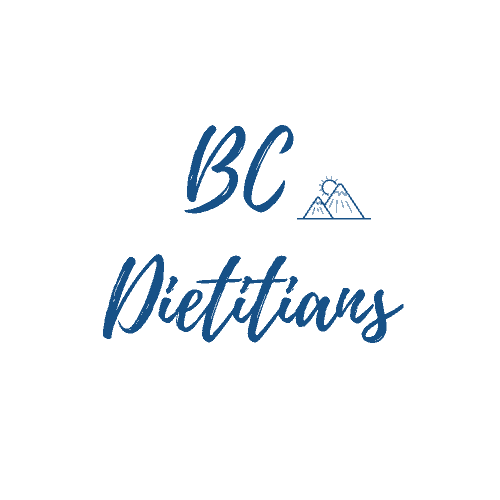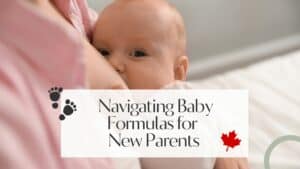Breastmilk is the best milk for babies for the first six months and up to two years and beyond.
In addition to providing many short-term and long-term health benefits to babies, breastfeeding is also very beneficial for the mothers.
Breastfeeding is promoted and protected by the World Health Organization (WHO) and Health Canada. In Canada, the initiation of breastfeeding rates at birth is consistently over 90% every year; however, this drops to only 30-40% for Canadians who exclusively breastfeed for at least 6 months.
It is very important that you seek support before starting formula for your baby if you are wanting to start or continue breastfeeding but have feeding concerns.
Keep breastfeeding if you are able to is the best way to protect your milk supply until you can get advice for your particular situation.
How do I Know if Baby is Getting Enough Breastmilk?
The most common reason for parents to consider using formula is that they worry their baby isn’t getting enough milk.
Babies on average feed at least 8 times per day.
Your baby will go through ‘growth spurts’ around 2-3 weeks, 6 weeks and 2-3 months and may want to feed even more often during these periods. This is a natural way to help build up the milk supply – the more your baby feeds, the more milk you will make.
It might feel like baby is hungry all the time and/or you are feeding all the time which often leads to the question, “Is my milk enough for my baby?” Here are some tips to help you answer this question.
Monitor Your Baby’s Weight
A good sign of baby getting enough milk is weight gain.
Babies will lose a bit of weight in their first few days of birth then starts to gain weight typically by day 4. Babies will gain their weight back by the time they are about 2-3 weeks old.
Babies will typically follow their own growth curve on the WHO growth charts.
Check for Wet and Poopy Diapers
A sign your baby is feeding well is that after the initial day 5-7 post birth, they are having 6 or more wet diapers in 24 hours and are pooing regularly (average 3 times per day).
Developmental Milestones
As your baby grows, they will experience many changes and development which may affect when and how often your baby wants to breastfeeding.
These milestones include gaining more awareness (more distracted during feeding) around 4 months, teething, and starting to crawl. It is important to follow baby’s cues on when and how long to feed.
A pediatric dietitian has the knowledge, skills and expertise to assess if your baby is getting enough breastmilk and growing well. They can also help answer your specific questions, help you problem solve, and ease your feeding concerns so that you can continue your breastfeeding journey if this is your goal.
Which Infant Formula is Best for My Baby?
When exclusive breastfeeding is not possible for personal, medical or other reasons, a commercial infant formula can be used in place of breastmilk.
Note that the benefits of breastfeeding are dose dependent – it’s important give your baby breastmilk whenever possible and if you’re using formula in addition to breastfeeding, please continue to seek support on breastfeeding.
Infant formulas found in the Canadian market (in grocery stores, pharmacies, distributors) are thoroughly evaluated for their safety and nutritional adequacy for babies by Health Canada before being approved for sale on the market.
In order for an infant formula to be approved by Health Canada, it must:
- Contain safe ingredients
- Contain all of the nutrients that a baby needs to be healthy and to grow
- Have undergone safe manufacturing and handling processes
- Fulfill Health Canada’s strict labeling requirements
- Have a validated expiration date
You can read more about the requirements that infant formulas must fulfill in order to be authorized by Health Canada here.
A list of all of the regulated infant formulas in Canada can be found here. Due to a previous formula shortage, Health Canada are in the process of adding some more foreign formula options to the approved list and should be finalized by Jan 2026.
Always check that the infant formula you are using is listed under the list of regulated infant formulas by Health Canada in order to keep your baby safe and healthy.
Infant formula is available in three formats:
1) ready-to-serve,
2) liquid concentrate that must be diluted with water,
3) powdered that is to be mixed with water
The powdered format is not sterile and presents a higher food safety risk hence it is recommended that higher risk babies should use ready-to-feed or liquid concentrate formats if possible.
Powdered formula can still be safely used in the higher risk babies when the sterile options are unavailable or unaffordable – powdered formula is often the cheapest option.
Powdered and all formats are suitable for all healthy, full term babies (born after 37 weeks) when prepared properly.
These higher risk babies include:
- Premature babies (born before 37 weeks of pregnancy) who are less than 2 months old based on their corrected age
- Babies less than 2 months of age, who weighed less than 2500 grams at birth
- Babies who have a weakened immune system, meaning they are more likely to get sick if exposed to germs
Where can I Buy Infant Formula Online?
These days many of us prefer to do our shopping online as it is convenient and easy. Trying to shop for infant formula online can be a little overwhelming, as there are so many websites and it can be confusing about which sites are trustworthy and safe.
Although you can ensure that infant formulas that you find in grocery stores are regulated by Health Canada, the same cannot be said about infant formulas found on the internet.
Health Canada does not regulate the infant formulas found on third-party websites that sell infant formulas such as amazon, Baby Loves Organics, The Milky Box, Organic’s Best, etc.
These websites may contain many infant formulas that are NOT authorized by Health Canada. Even if you do find an infant formula that is on the list of Health Canada’s authorized formulas, there is a risk that the formula could be a counterfeit product.
If you want to purchase infant formulas online, the safest option is by purchase from Canadian grocery and drug store websites. When shopping on a Canadian grocery/drug store’s website, you can ensure that all of the infant formulas there are regulated by Health Canada.
Here are a few options of Infant Formulas on Canadian Grocery/Drug Store Websites:
The other safe way of purchasing infant formulas online, is to purchase directly from the infant formula’s manufacturer’s website in Canada (often these websites will end in .ca).
By ordering directly from the manufacturer’s website, you are avoiding the risk of receiving a counterfeit product that could be unsafe for your baby.
Here are a few Infant Formula Manufacturer Websites:
Why are ingredients such as Corn Syrup and Maltodextrin in Infant Formula?
Yes, corn syrup solids and maltodextrin are safe ingredients in infant formula.
They are sugar-based sweetening agents added to many different foods and are approved by Health Canada. Note that Corn Syrup Solids are NOT the same as High-Fructose Corn Syrup. High-fructose corn syrup is an ingredient found commonly in sweetened processed foods and drinks.
Many lactose-free or lactose-reduced formulas contain corn syrup solids and/or maltodextrin.
- Lactose is a natural sugar found in regular cow’s milk formulas that provides your baby with energy (kcal).
- In lactose-free formulas, corn syrup and/or maltodextrin are carbohydrates that replace lactose and provide the energy that your baby needs from the formula.
Can I Give My Baby Homemade Formula?
No. DO NOT give your baby homemade infant formulas made from online recipes, homemade formula kits, and/or homemade formula purchased from outside parties.
This can put your baby at health risks and potentially death.
Commercial infant formulas that are authorized by Health Canada have been developed and thoroughly evaluated by experts to make sure these formulas will provide your baby with adequate nutrition.
In order to keep your baby safe and healthy, give your baby commercial infant formulas that are authorized by Health Canada.
Homemade formulas are not more natural than commercial options nor is it cheaper to make.
In Canada, it is illegal to sell homemade infant formulas as they have not gone through the rigorous approval process to ensure their safety and adequacy for a baby.
If you know of someone selling homemade infant formula, please report them to the Canadian Food Inspection Agency here.
A pediatric dietitian can help you choose the best suited formula options for your baby’s needs and to continue breastfeeding partially if that is part of your plan.
Conclusion
While breast milk is the optimal nutrition for babies, it’s important for parents to have accurate information and support when considering infant formula options.
We also recommend ongoing support for breastfeeding for parents who are wanting to start or continue breastfeeding partially or exclusively.
Whether due to personal choice or necessity, selecting the right formula requires understanding its nutritional adequacy, safety, and ingredients.
Registered dietitians aim to empower new parents with knowledge and confidence in their feeding decisions, optimizing the health and well-being of their babies. For further individualized support on your feeding journey, connect with a pediatric dietitian today.

Amy Chow, RD (BC Dietitians Team)
Blog contribution :
- partially written by Dietetics student Una Bach.
- Written and reviewed by Amy Chow, RD
References:
- Health Canada. (2021, June 25). List of Dietary Fibres Reviewed and Accepted by Health Canada’s Food Directorate. Canada.ca. https://www.canada.ca/en/health-canada/services/publications/food-nutrition/list-reviewed-accepted-dietary-fibres.html
- Health Canada. (2023a, October 12). Interim policy on the importation and sale of infant formulas, human milk fortifiers and dietary products for the treatment of inborn errors of metabolism to mitigate shortages. Interim policy on the importation and sale of infant formulas, human milk fortifiers (HMF) and metabolic products for inborn errors of metabolism to mitigate shortages. – Canada.ca. https://www.canada.ca/en/health-canada/services/food-nutrition/legislation-guidelines/policies/interim-policy-importation-sale-infant-formula-human-milk-fortifiers-metabolic-products.html
- Health Canada. (2023, October 18). Infant formulas reviewed by Health Canada. Canada.ca. https://www.canada.ca/en/health-canada/services/infant-care/infant-formula/shortage/infant-formulas-reviewed-health-canada.html
- Legislative Services Branch. (2023, November 30). Consolidated federal laws of Canada, Food and Drug Regulations. Food and Drug Regulations. https://laws-lois.justice.gc.ca/eng/regulations/c.r.c.%2C_c._870/page-50.html#docCont









Add a comment